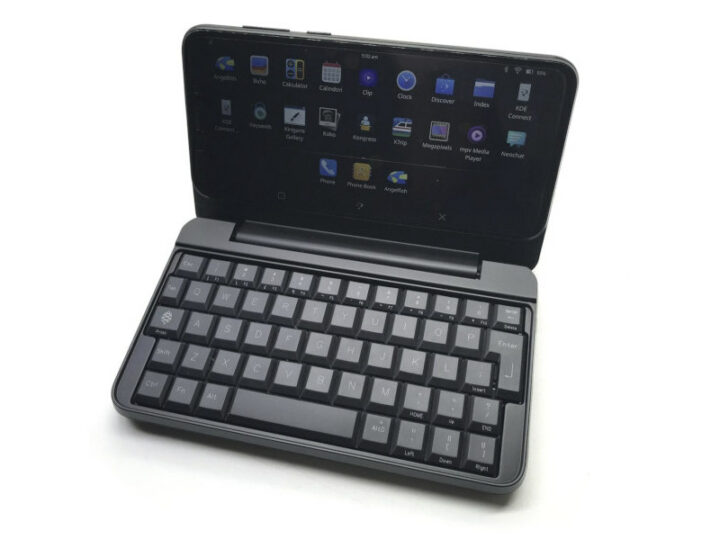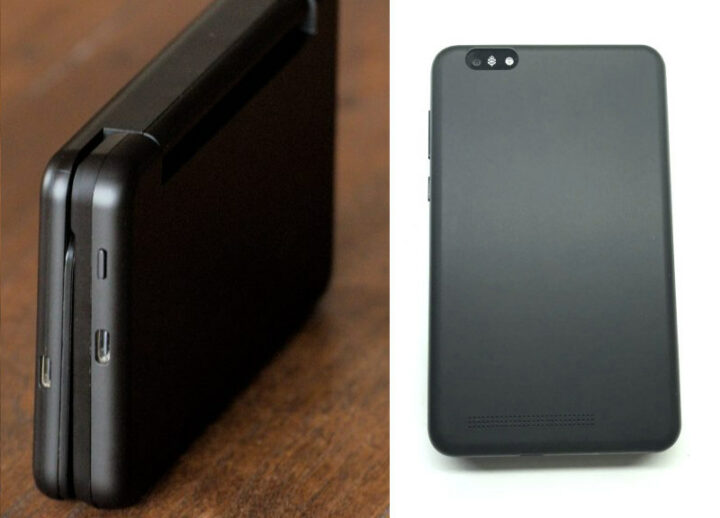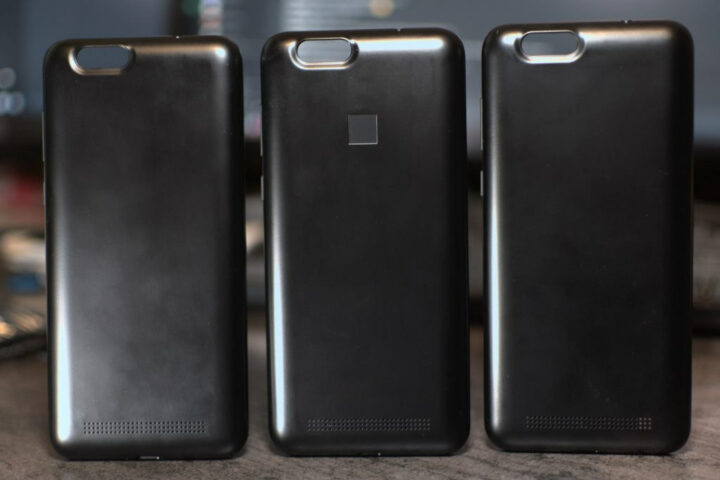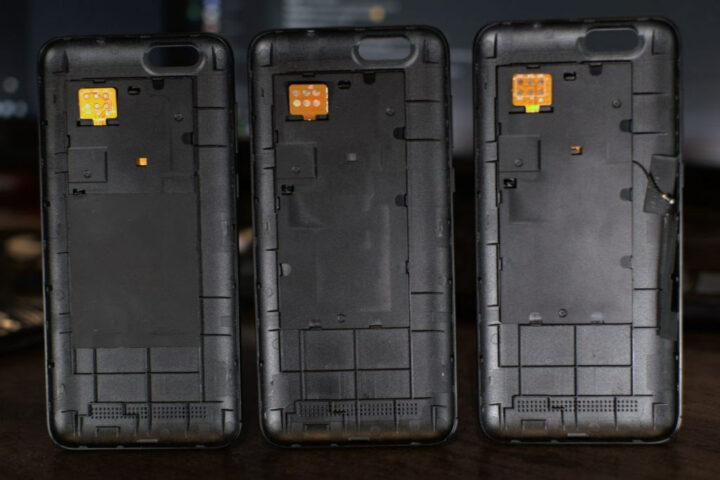Pine64’s PinePhone Linux smartphone and its successor, the upcoming PinePhone Pro, are designed to be modular and extensible with a PinePhone Keyboard case prototype showcased here in April 2021 and aimed to transform the phone into what looks like a PDA.
The design has now been refined, and Pine64 has just launched the PinePhone (Pro) keyboard case for $49.99, together with three back covers with either a LoRa module, a fingerprint scanner, or Qi wireless charging for $9.99 to $24.99 depending on the model. All are now available on Pine64 store.
PinePhone (Pro) Keyboard Case
 Key features and specifications:
Key features and specifications:
- ISO QWERTY layout with 54 keys in 5 rows. Note the key caps can be rearranged, so you could easily make an AZERTY or QWERTZ keyboard for example
- 180° hinge for two-hand typing on surface or thumb-typing when held
- Pogo pin connector to connect to PinePhone (Pro) smartphone
- USB – USB Type-C port for charging, and capable of powering both the case and the phone
- Expansion – Internal USB header for expansion
- Battery – 6,000mAh internal battery with manual ON/OFF toggle
- Power Supply – 5V/3A via USB-C port
- Dimensions – 161 x 95 x 21.5mm (while closed)
- Weight – About 190 grams without phone
You’d still have access to all PinePhone (Pro) ports with the keyboard attached including the USB-C port, speaker, microphone, volume and lock buttons, cameras, etc… The firmware for the case is fully open source, but note the keyboard enclosure will only work with postmarketOS, Manjaro Linux, DanctNIX (Arch Linux Arm), and Mobian at this time. The main downside is that the system will be awkward to use to receive/made phone calls unless your use an audio headset.
Other PinePhone cases/back covers
Pine64 also introduced three other cases for the PinePhone (Pro) with one with PineDio LoRa module, the other with a fingerprint scanner, and another with Qi wireless charging. From the back, they would all look the same if it was not for the fingerprint sensor. The inside is not much different either with a 6-pin pogo pin interface, but the internal antenna gives a clue of which model is fitted with a LoRa module.
The PineDio LoRa drivers have been written by JF (CodingField), the fingerprint sensor relies on an open firmware for I2C bridge by Zachary Schroeder which may be based on his “tiny-i2c-spi” project, and I understand the Qi case is purely a hardware project.
Via Pine64’s Blog

Jean-Luc started CNX Software in 2010 as a part-time endeavor, before quitting his job as a software engineering manager, and starting to write daily news, and reviews full time later in 2011.
Support CNX Software! Donate via cryptocurrencies, become a Patron on Patreon, or purchase goods on Amazon or Aliexpress








cool, order made!
Reminds me to the Jolla 1 phone 10 years ago…
Way back I had a Eten phone with a slide out a keyboard, way before Android. It ran a Microsoft OS. This thing is clunky. Why not a generic Bluetooth or cable, battery keyboard for any similar sized phone.
It’s bigger than a slide out keyboard in exchange for extra battery life and better keyboard quality (key travel etc). You can still thumb type with this. By comparison bluetooth keyboards for phones are even clunkier, requiring a desk and a lot more space. The ones I can find on amazon are only 2/3rd the price so not a massive saving but they’re all tablet sized.
But of course there’s nothing stopping you from buying one. Personally nothing beats a hardware keyboard physically attached and designed for the phone.
IMHO, the keyboard is too small to be usable even with my medium size hands. I do not know if swype is available on Linux, swype may be faster for typing text on such keyboard. A full size bluetooth keyboard is probably necessary for productive work.
However, this accessory is brilliant:
(Maybe a media/gaming or pointing device could be more useful?)
Just a slight correction. The keyboard can work with any system, because there’s also a userspace input daemon implementation. I run it with normal arch linux arm: https://www.youtube.com/watch?v=ZaciUkMrXiY